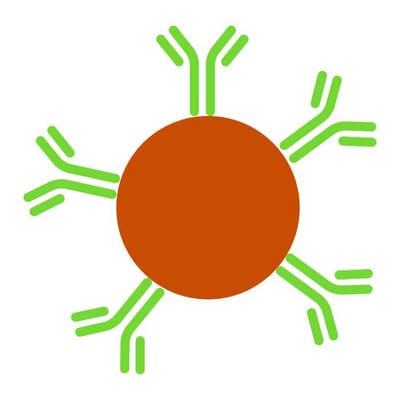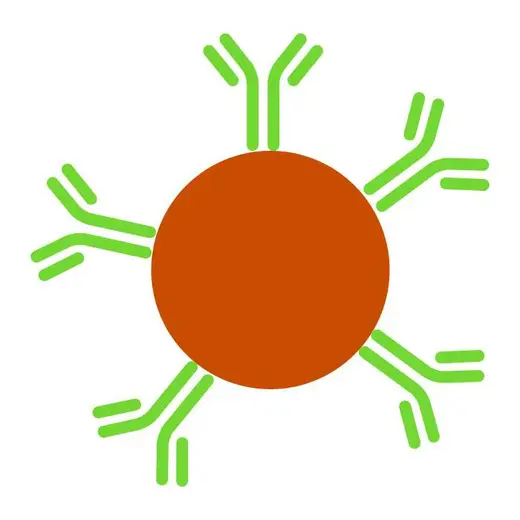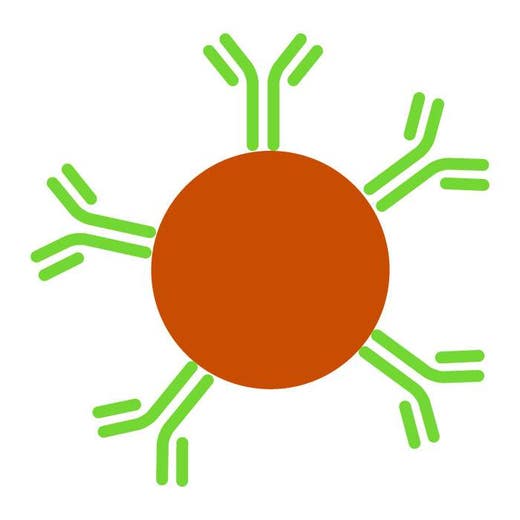
AlphaLISA Anti-H3K36me2 Acceptor Beads, 250 µg


AlphaLISA Anti-H3K36me2 Acceptor Beads, 250 µg






AlphaLISA Acceptor beads conjugated to anti-H3K36me2 antibody. These beads can be used for AlphaLISA epigenetic assays using histone or nucleosome substrates.
| Feature | Specification |
|---|---|
| Application | Biochemical Enzymatic Assay |
AlphaLISA Acceptor beads conjugated to anti-H3K36me2 antibody. These beads can be used for AlphaLISA epigenetic assays using histone or nucleosome substrates.



AlphaLISA Anti-H3K36me2 Acceptor Beads, 250 µg



AlphaLISA Anti-H3K36me2 Acceptor Beads, 250 µg



Product information
Overview
AlphaLISA™ Acceptor beads coated with anti-H3K36me2 antibody, for detection of di-methylated Lysine 36 on Histone H3 in an AlphaLISA no-wash assay using full-length histone or nucleosome substrates. In a typical Alpha assay, 250 µg of Acceptor beads is sufficient to run 500 wells in 96-well or 384-well format, using a 25 µL reaction volume.
In the AlphaLISA assay, a full-length histone or nucleosome substrate is used in an biochemical enzymatic reaction with histone methyltransferase (HMT) enzymes, using SAM as a cofactor. When the enzymatic reaction is stopped, the level of lysine 36 (K36) methylation on Histone H3 is determined using antibody-coated AlphaLISA Acceptor beads, a biotinylated antibody against Histone H3 (Cat. No. AL118), and streptavidin Donor beads. The biotinylated antibody recognizes the C-terminus of Histone H3, while the antibody on the AlphaLISA Acceptor beads recognizes H3K36Me2. Upon laser irradiation of the bead complexes at 680 nm, short-lived singlet oxygen molecules produced by the Donor beads can reach the Acceptor beads in proximity to generate an amplified chemiluminescent signal at 615 nm. The intensity of light emission is proportional to the level of substrate modification.
Specifications
| Application |
Biochemical Enzymatic Assay
|
|---|---|
| Automation Compatible |
Yes
|
| Bead Type or Material |
AlphaLISA Acceptor
|
| Brand |
AlphaLISA
|
| Conjugates |
Anti-H3K36me2
|
| Detection Modality |
Alpha
|
| Molecular Modification |
Methylation
|
| Product Group |
Beads
|
| Shipping Conditions |
Shipped in Blue Ice
|
| Target Class |
Epigenetics
|
| Technology |
Alpha
|
| Unit Size |
250 µg
|
Video gallery

AlphaLISA Anti-H3K36me2 Acceptor Beads, 250 µg

AlphaLISA Anti-H3K36me2 Acceptor Beads, 250 µg

Resources
Are you looking for resources, click on the resource type to explore further.
Epigenetic modifications in cancer
The field of epigenetics has revealed revolutionary methods for understanding heredity...


How can we help you?
We are here to answer your questions.






























